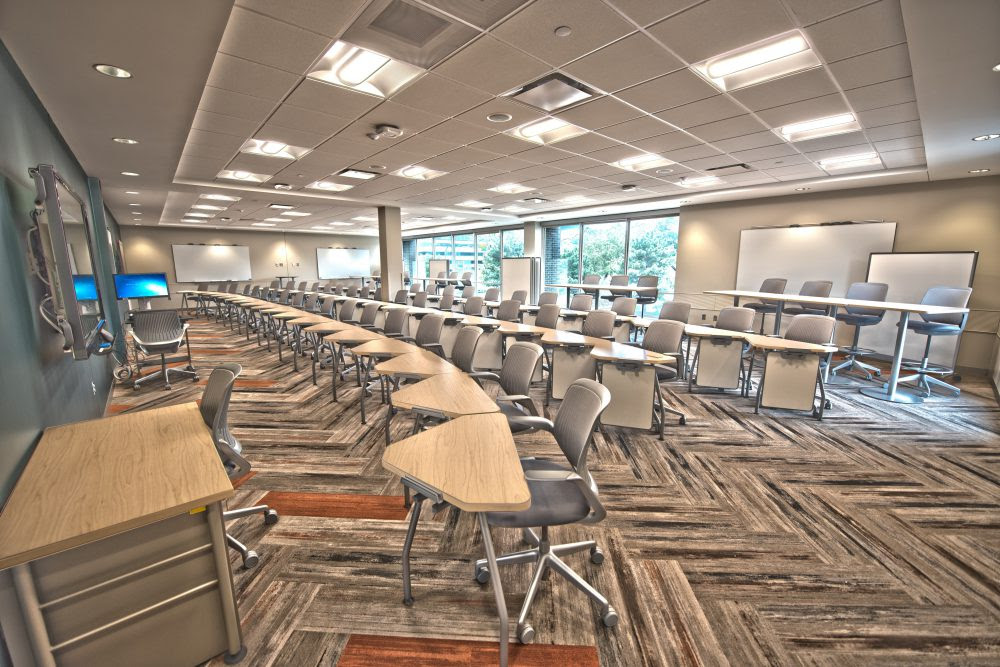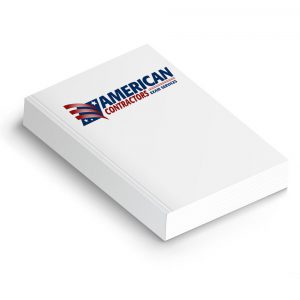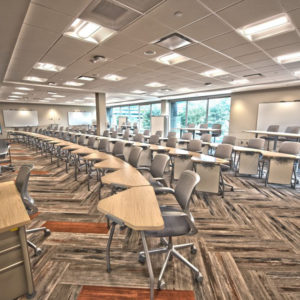Diagnostics 1- Diagnosing 12 Residential Systems
We offer custom training options for the Diagnostics 1- Diagnosing 12 Residential Systems training built around your schedule. Find out now what options we have available.
Explore Custom Training TodayThe objective of this course is using organized methods of troubleshooting. Review of “normal” High Side conditions. Review of “normal” Low Side conditions. Diagnosing system components. Diagnosing 11 common system problems and 1 normal system operation.
Organized troubleshooting, know the system. What is it supposed to be doing? Listen to the customer, their observations are very important. Use all your senses, look, touch, smell, and listen. Be logical and analytical, use “If…then…” thinking. “Network”, get input from other techs, or the manufacturer. In this workshop we will be using a diagnostic chart for each service problem by getting system pressures along with superheat/subcooling.
This 6-hour class counts as Continuing Educational credits for: NATE- 4
- Required Books
- State Requirements
- Scope of Work
- Applications
- Reciprocity
- Continuing Education
- Exam
- Training
Removing Tab
There are no specific requirements for this course. Individuals who wish to better understand Residential HVAC System problems are encouraged to take this course.
The objective of this course is using organized methods of troubleshooting. Review of “normal” High Side conditions. Review of “normal” Low Side conditions. Diagnosing system components. Diagnosing 11 common system problems and 1 normal system operation.
Organized troubleshooting, know the system. What is it supposed to be doing? Listen to the customer, their observations are very important. Use all your senses, look, touch, smell, and listen. Be logical and analytical, use “If…then…” thinking. “Network”, get input from other techs, or the manufacturer. In this workshop we will be using a diagnostic chart for each service problem by getting system pressures along with superheat/subcooling.
This 6-hour class counts as Continuing Educational credits for: NATE- 4
Diagnosing 12 System (TEV and Fixed Metering Devices troubleshooting) is using organized methods of troubleshooting.
Topics covered include:
Undercharge and Overcharge of Refrigerant, Dirty Condenser, Air in the system, Inefficient Compressor, Restricted Metering Device, Restriction in the liquid line before and after the Receiver, Dirty or iced evaporator, dirty filter or low air flow, Low ambiemt control problem, Flooding TEV and Normal Operation
Important Contacts
Tennessee Board for
Licensing Contractors
500 James Robertson Pkwy, 1st Floor
Nashville, TN 37243-1150
615-741-8307
3210 E. Tropicana
Las Vegas, NV 89121
(800) 733-9267
(702) 932-2666 Fax
Removing Tab
This is a troubleshooting class for local contractors to help diagnose issues that commonly occur. There is no reciprocity for this course.
This 6-hour class counts as Continuing Education credits for: NATE - 4
Removing Tab
There is no exam required
Diagnosing 12 System Problems (TEV and Fixed Metering Devices) is using organized methods of troubleshooting. Review of “normal” High Side conditions. Review of “normal” Low Side conditions. Diagnosing system components. Diagnosing 11 common system problems and 1 normal system operation. Organized troubleshooting, know the system. What is it supposed to be doing? Listen to the customer, their observations are very important. Use all your senses, look, touch, smell, and listen. Be logical and analytical, use “If…then…” thinking. “Network”, get input from other techs, or the manufacturer. In this workshop we will be using a diagnostic chart for each service problem by getting system pressures along with superheat/subcooling.



